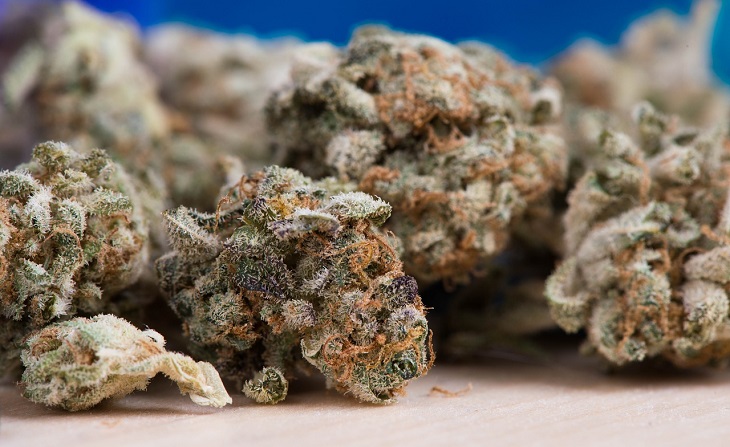Although medical marijuana (MMJ) is not legal in all 50 states in the U.S., there are some states where citizens are taking full advantage of their MMJ cards. Oklahoma made medical marijuana legal back in August 2018, and since then, more than 151,000 Oklahomans have received MMJ cards from the Oklahoma Medical Marijuana Authority (OMMA). That number means that more than 3.5% of the state’s population are MMJ card holders. With more MMJ cards per capita than in any other state, Oklahoma has definitely become a very MMJ-friendly state. Here’s a rundown of everything you need to know about medical marijuana in Oklahoma.
What is the history of MMJ in Oklahoma?
Oklahoma first officially banned recreational marijuana back in 1933. Up until recently, cannabis users and growers were prosecuted under the full extent of the law. Medical use of cannabis was legalized in 2018, making Oklahoma the 30th state to do so. Unlicensed possession of marijuana of up to 1.5 ounces is still punishable by a misdemeanor conviction and a $400 fine if a medical reason can be provided. Since 2013, DUI (driving under intoxication) penalties include being jailed for no less than 10 days and for no more than a year. A second offense requires longer sentencing. Non-licensed making of hashish or cannabis brownies may include life imprisonment. However, Oklahoma MMJ laws allow for MMJ cardholders to make and possess these products.

What are the laws surrounding MMJ in Oklahoma?
OMMA carries out statewide regulations for medical marijuana use in Oklahoma. The Oklahoma MMJ legal status declares that an MMJ card holder can legally possess:
- 3 ounces of marijuana
- 6 mature marijuana plants (or plants that are in the budding stage)
- 6 seedling marijuana plants (or plants that are in the vegetative state and are not yet budding)
- 1 ounce of concentrated marijuana
- 72 ounces of edible marijuana (also known as edibles like brownies or candy)
- 8 ounces of marijuana in their residence
Currently, smokable forms of MMJ can be legally consumed in any place that allows smoking of tobacco products. Edibles can be consumed anywhere. Please note that even with an MMJ license, you are still only permitted to buy MMJ products from state-licensed dispensaries. It is illegal to purchase from a dealer or from another MMJ card holder.
What are the qualifying conditions for an Oklahoma MMJ card?
Oklahoma is one of the few states with legalized medical marijuana that doesn’t have a specific set list of medical conditions that will qualify. However, there are some common conditions that will ensure you qualify, including:
- Epilepsy or other seizure disorders
- Cancer (or another terminal illness)
- Glaucoma
- Parkinson’s
- HIV/AIDS
- Crohn’s disease
- Multiple sclerosis
Medical marijuana has also been shown to be helpful in treating serious symptoms such as chronic pain, severe nausea, muscle spasms, and inflammation. In order to see if your medical condition will help you qualify, you’ll need to consult with a licensed Oklahoma physician to get evaluated. They will need to assess your condition and determine if MMJ could be helpful with your particular symptoms. From there, they’ll need to help you complete your application form. If you don’t have a medical professional that you trust or if it’s challenging for you to make it to an in-person appointment, consider connecting virtually with a licensed medical professional through MMJRecs. They can also assist you in completing the medical certification portion of your application.

Where do you get an Oklahoma MMJ card?
You’ll need to fill out an application to get an MMJ card. So, to get started on that application, head online to the omma.ok.gov website. You’ll need to pay a $100 application fee using a credit card (Visa, MasterCard, or Discover credit or debit card). There may be additional credit card processing fees added to your transaction. You can pay a lower fee of $20 if you use Medicaid (SoonerCare) or Medicare. Your application will require some of your personal info, such as your full name, date of birth, residence and mailing address, telephone number, email address, and your signature. Your physician will also need to complete and sign the Adult Patient Physician Recommendation Form. To show proof of Oklahoma residency, you’ll need to include a digital color copy of one of the following:
- Driver’s license
- ID card
- Voter ID card
- A utility bill for the calendar month preceding the date of application
- A residential property deed
- A current rental agreement for residential property
Additionally, you’re required to provide proof of identity, which can be your driver’s license, ID card, U.S. passport, or tribal identification card. The application also needs you to submit a clear, color, full-face digital photograph of yourself. After you’ve submitted your application, OMMA reviews it. If you’ve been approved, you’ll receive a letter and your MMJ card in the mail within 14 days. This card will be valid for two years, at which time you’ll need to renew your license by submitting another application and paying the fee again. You can make this process easier by going through MMJRecs.
Because the state has become so tolerant of MMJ users, it’s a great place to live if you’re interested in getting medical marijuana in Oklahoma. So apply for your MMJ card and remember to follow all of the regulations laid out by OMMA, and you’ll quickly see the benefits of medicinal cannabis use.
